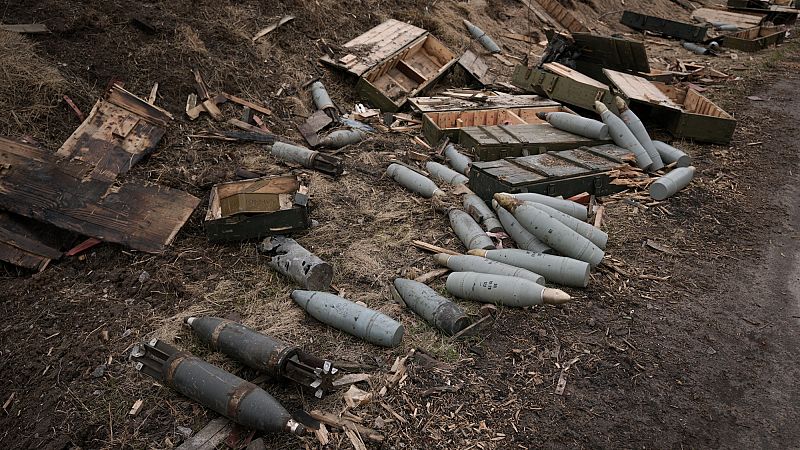
The Russian army is developing its war capabilities by multiple times more than that of NATO despite having an economy 25 times smaller, NATO's secretary general has warned.
Mark Rutte also suggested Russia could attack NATO territory within three to five years, during a press conference ahead of a defence ministerial meeting taking place at NATO headquarters in Brussels.
Rutte's remarks come as the US is demanding its NATO allies show "credible" progress towards spending 5% of GDP on defence.
"The Russians, as we speak are reconstituting themselves at a rapid pace and producing four times more ammunition in three months than the whole of NATO in a year," said Rutte.
He said Russia is doing this despite having an economy 25 times smaller than the combined economy of NATO.
"So we really have to ramp up our defence spending, and that includes command and control, long range air defence systems to keep ourselves safe in case the Russians decide to attack us in three to five years," he told reporters.
Demands for NATO allies to increase defence spending from 2% of GDP to 5% is the key focus of this week's meeting, as well as a leaders' summit for the alliance taking place in the Hague on 24 and 25 June.
"Putin needs to know if he tries to attack the Baltics or NATO our response will be devastating," Rutte said.
The timeline for allies to meet the 5% target hasn't yet been agreed but US Ambassador to NATO Mathew Whitaker said Washington expects countries to start ramping up spending immediately.
US President Donald Trump expects allies to "show meaningful progress on defence budgets and credible growth year after year", Whitaker told journalists in a briefing ahead of the defence ministers' meetings on Wednesday.
"The core of our message is 5% - every ally must commit to spending 5% [of GDP]," Whitaker said.
He said the US is committed to NATO but the US wants to see Europeans "take a leadership role on European security".
He also said Trump wants the war in Ukraine to end, adding: "This war needs to come to an end – the cost is very high on both sides."







